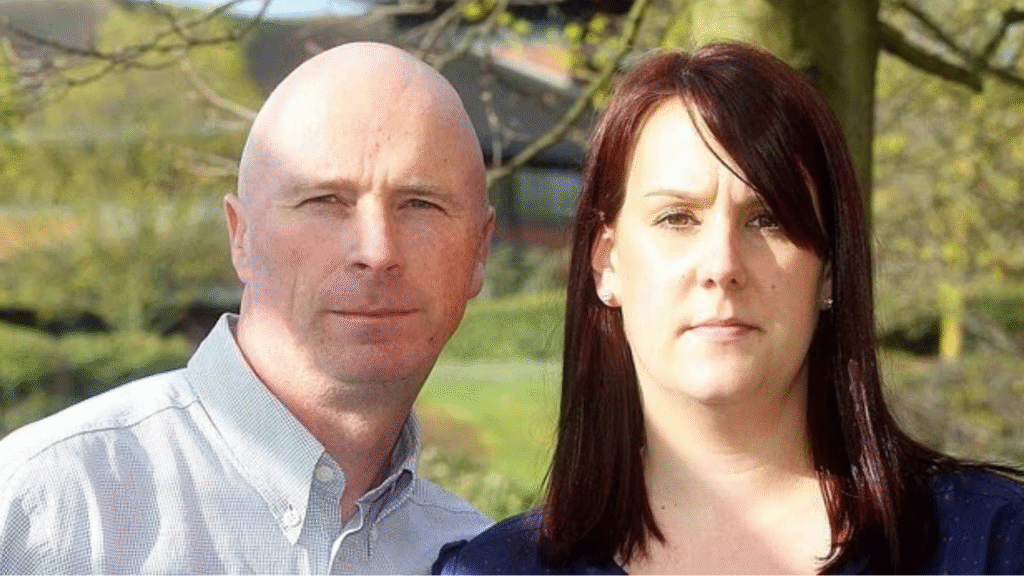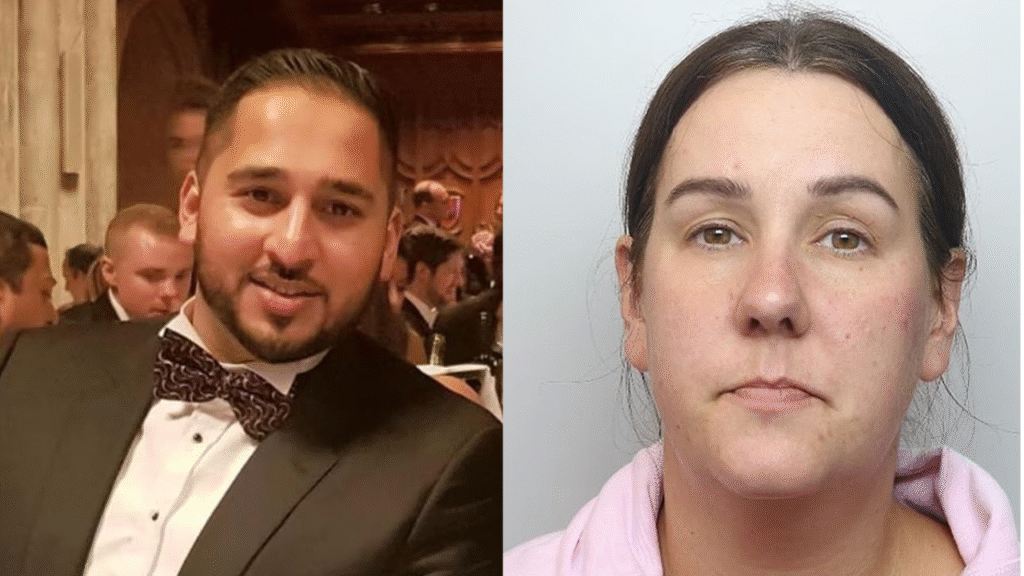Conservative MP Demands Justice Reform as Twitter User Received Double Prison Time for Social Media Post
A recruitment executive who terrorized Virgin Atlantic cabin crew with gang rape threats and violent abuse during a champagne-fueled rampage is having his sentence challenged as politicians spotlight alarming inconsistencies in Britain’s criminal justice system.
Political Intervention Over Sentencing Disparity
Shadow Home Secretary Chris Philp has formally demanded that Attorney General Lord Hermer review the 15-month prison sentence handed to Salman Iftikhar, arguing it represents a dangerous example of “two-tier justice” in modern Britain.
The intervention follows widespread outrage that Lucy Connolly, a councillor’s wife, received 31 months imprisonment for posting an inflammatory tweet about migrant hotels – more than double Iftikhar’s sentence despite what critics argue was a significantly less serious offense involving physical threats and sustained harassment.

The Virgin Atlantic Horror Flight
Iftikhar, 37, transformed a first-class flight from London Heathrow to Lahore into a nightmare for passengers and crew through what prosecutors described as over 100 separate acts of abuse and intimidation throughout the journey.
The wealthy recruitment tycoon, traveling with his wife and three children, launched into sustained verbal and physical aggression that left fellow first-class passengers watching in horror as events unfolded at 39,000 feet.
Sustained Campaign of Terror Against Crew
Flight attendant Angie Walsh bore the brunt of Iftikhar’s alcohol-fueled rage, being repeatedly called a “f*ing b**” as the businessman consumed champagne throughout the flight. However, his abuse escalated far beyond verbal harassment.
Isleworth Crown Court heard disturbing testimony about the extent of Iftikhar’s threats, which included:
- Threatening to gang rape Ms. Walsh after dragging her from her hotel room
- Promising to blow up the five-star Avari Lahore Hotel where crew were staying
- Attempting to physically fight other cabin crew members
- Making over 100 separate threatening statements during the flight
The sustained abuse left Ms. Walsh “broken” and “traumatized,” according to court testimony, with the businessman declaring she would be sexually assaulted once the plane landed.
False Accusations and Racial Claims
In recorded footage from the incident, Iftikhar can be heard making false accusations against the cabin crew, repeatedly claiming that Ms. Walsh had called him a racial slur “in front of everybody.” These fabricated claims formed part of his sustained harassment campaign throughout the journey.
The businessman’s behavior became increasingly erratic as he consumed more alcohol, with his threats becoming more specific and violent as the flight progressed toward Pakistan.
Family Witnesses Traumatic Abuse
Perhaps most disturbing was that Iftikhar’s wife and three young children were forced to witness the entire ordeal, with family members crying and desperately pleading for him to stop his abusive behavior.
The professional cabin crew, despite being targets of sustained threats and harassment, had to comfort the distressed children while simultaneously managing their father’s dangerous behavior. The psychological impact on both crew and passengers, including his own family, continued for the entire duration of the international flight.
From Business Success to Criminal Conviction
The dramatic fall from grace is particularly stark given Iftikhar’s professional background. Together with his wife Erum Salman, 38, he operates a successful London-based staffing company that ironically provides customer service training to businesses across manufacturing and service sectors.
The company’s focus on professional behavior and customer service excellence stands in sharp contrast to Iftikhar’s treatment of the Virgin Atlantic staff, highlighting the disconnect between his professional persona and criminal behavior.
Following the flight, Iftikhar was arrested at his detached family home in Iver, Buckinghamshire, where he ultimately admitted to charges of making threats to kill and racially aggravated harassment.
The Twitter Comparison Controversy
The case has ignited fierce political debate following comparisons with Lucy Connolly’s substantially longer prison sentence for social media activity during the aftermath of the Southport riots.
Connolly’s deleted tweet stated: “Mass deportation now, set fire to all the f****** hotels full of the b******* for all I care… if that makes me racist so be it.” Despite the inflammatory language, critics argue her social media post involved no direct physical threats or sustained harassment of specific individuals.
The councillor’s wife, who lost her subsequent appeal against the 31-month sentence, is scheduled for release later this month after serving significantly more time than Iftikhar despite what many consider less serious criminal behavior.
Conservative Criticism of Government Justice Policy
In his formal letter to Lord Hermer, Chris Philp drew stark contrasts between the two cases, emphasizing that while Connolly “made a wrong and distasteful social media post,” Iftikhar “made over 100 sickening threats to cabin crew” and possessed multiple previous criminal convictions.
“This is two-tier justice in action,” Philp declared, challenging the Attorney General directly: “We’ll now find out if Hermer is willing to take action to fix Britain’s two-tier justice problem.”
The Shadow Home Secretary warned that failure to review Iftikhar’s sentence would constitute “yet another example of two-tier justice under this Government,” escalating the political stakes around the decision.
Legal Framework and Review Process
The Unduly Lenient Sentence scheme provides a mechanism for public intervention in criminal sentencing, allowing any individual to request review of Crown Court sentences through the Attorney General’s Office.
If officials determine that a sentence was inappropriately light given the circumstances and severity of the crimes, they can formally request that the Court of Appeal reconsider the original punishment.
The charges against Iftikhar carry substantial maximum penalties – threats to kill can result in up to 10 years imprisonment, while racially aggravated harassment carries a maximum two-year sentence. However, both offenses can also be addressed through community orders, providing judges with significant discretionary sentencing ranges.
Political Stakes and Public Confidence
The case has become a flashpoint for broader concerns about consistency and fairness within Britain’s criminal justice system, particularly regarding how different types of criminal behavior are weighted and punished.
Critics argue that the apparent disparity between online speech and physical threats undermines public confidence in equal treatment under the law, while supporters of tougher social media prosecution maintain that incitement can have serious real-world consequences.
Awaiting Official Response
The final decision on whether to pursue a sentence review now rests with Lord Hermer and the Attorney General’s Office, who must determine whether Iftikhar’s punishment adequately reflected the severity of his sustained campaign of threats and harassment.
Should the case proceed to the Court of Appeal, judges will need to balance factors including the defendant’s previous convictions, the psychological impact on victims, the public nature of the crimes, and the need for sentences that both punish and deter similar behavior.
The outcome will likely have broader implications for how Britain’s justice system handles cases involving sustained harassment and threats, particularly in contexts where victims cannot easily escape their attackers, as was the case during the international flight.
As political pressure mounts and public scrutiny intensifies, the case serves as a critical test of whether Britain’s justice system can address perceived inequalities while maintaining consistent application of criminal law across different types of offenses and offenders.






